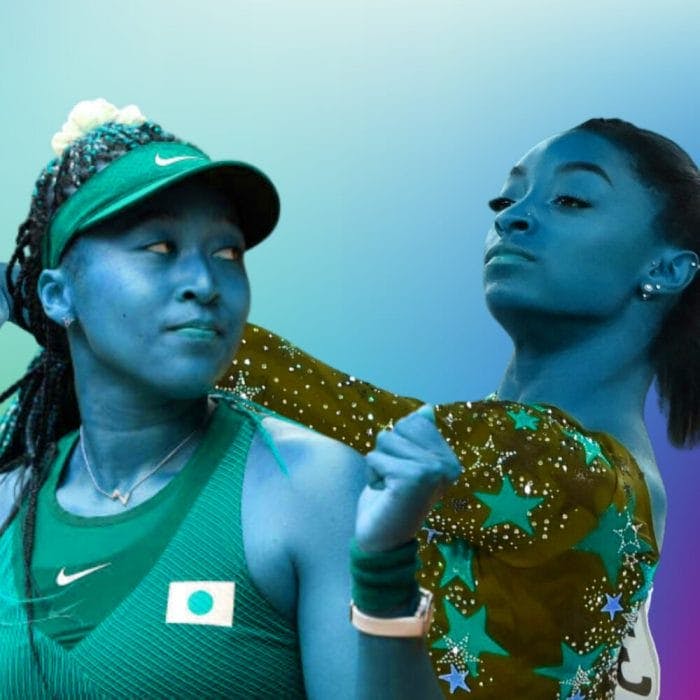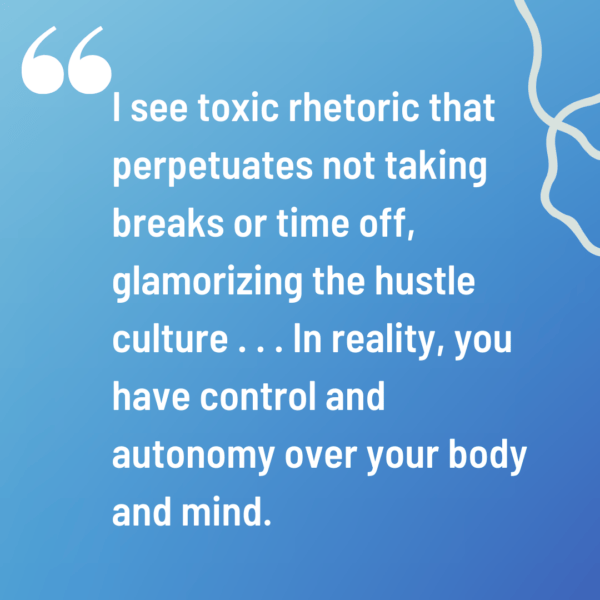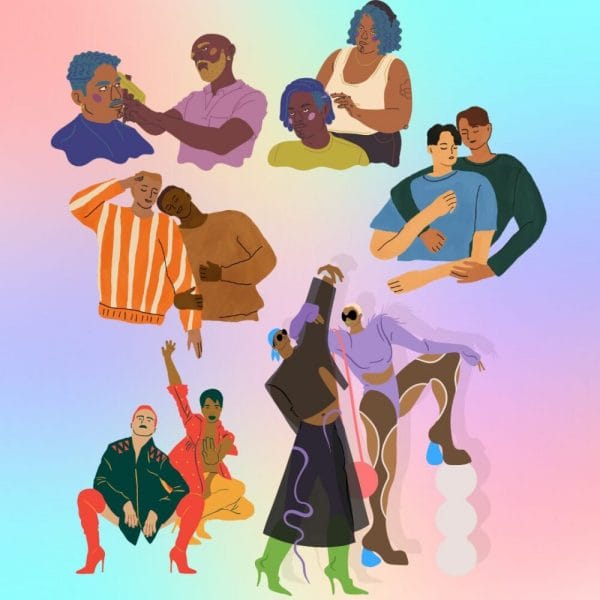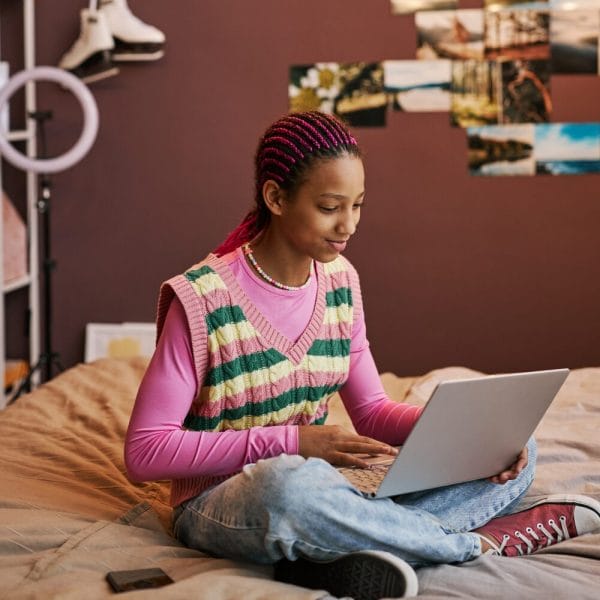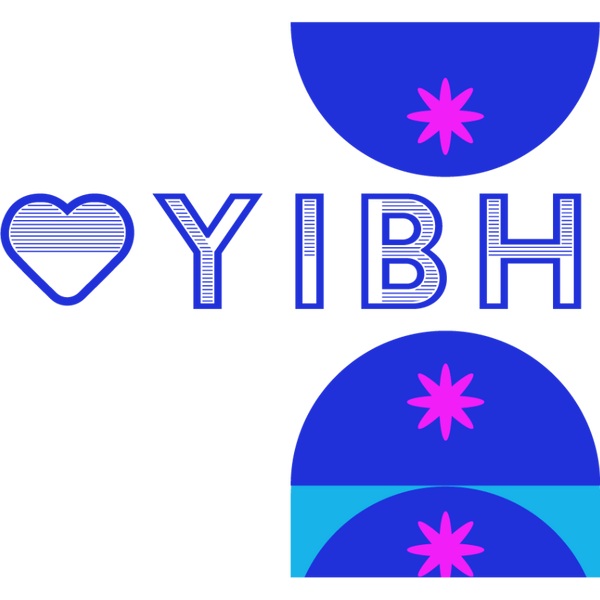Grace Greene and Robin Raskob reflect on the mental health revolution the world needs to see
I’m watching women from around the world complete superhuman feats, and I’m not talking about the Yurchenko double pike vault. While that skill is certainly impressive, what seems like an insurmountable feat is navigating the pressure that surrounds young athletes today. In the course of the last two months, we’ve seen some of the biggest names in sports, Naomi Osaka and Simone Biles, say ‘yes’ to their mental health, treating it with the same importance as they would their physical health. Slow clap from the sidelines, ladies. This is the revolution the world needs to see.
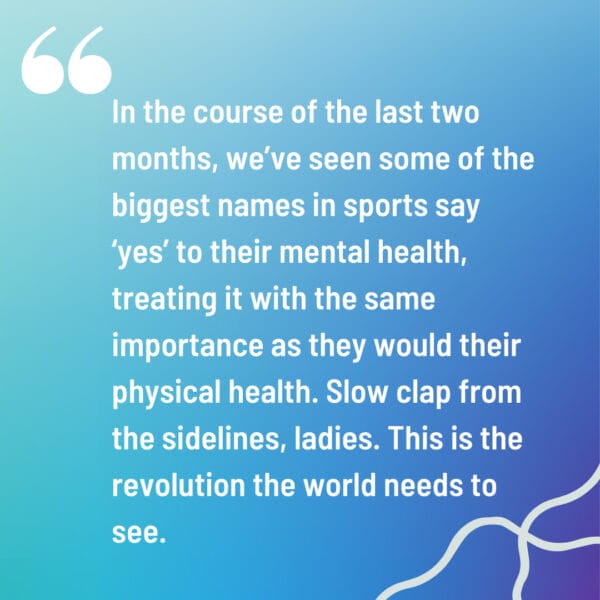
I watched the all-around gymnastics competition with my daughter. And while I knew what was about to unfold, my six-year-old was blissfully unaware and at the ready with her red, white, and blue hair scrunchies to cheer on “The Goat” (as she was lovingly calling Simone Biles) and team USA. “Wow,” I heard a little voice say as Biles took off for her vault. As she fumbled the landing and the incessant negative commentary from the “experts” began, my child turned to me, took a deep breath, and said, “Do you think The Goat is ok, Mom? That seems like a lot of pressure.” Sometimes kids are the most insightful.
Yes, it seems like a lot of pressure because it IS a lot of pressure—an unfair amount of pressure put on young women in the public eye often from those who have no right to judge. In his Daily Mail column, Piers Morgan criticized Biles saying, “I don’t think it’s remotely courageous, heroic or inspiring to quit. When you call yourself the GOAT in sport, you can’t then quit the moment things get tough or you make a mistake.” What I found most inspiring to watch was Biles’s resilience and her ability to use community care to foster support for herself and her teammates. In the face of a deep mental health struggle, Biles was right there next to her team, cheering them on, asking them what they needed to be successful, offering hugs, high fives, and support, and likely drowning out the incessant negative chatter.
Understanding Issues Contributing to BIPOC Mental Health Inequities
BIPOC Americans bear a disproportionately high burden of disability resulting from mental disorders. An online survey from 2020 showed that the highest proportion of people reporting moderate to severe symptoms of mental health disorders were non-white, and loneliness, isolation, and past trauma ranked as the top contributing factors to mental health problems across the board. When Mental Health America added “racism” as a survey item to select, it was chosen by 19% of Black respondents.
Naomi Osaka is no stranger to racism, having faced racist remarks from the news media, comedy duos, and even her own sponsor, who whitewashed the tennis star (who is half-Haitian, half-Japanese) in an anime-style commercial. Biles is a survivor of abuse at the hands of USA Gymnastics physician, Larry Nassar. Surviving years, as many other young girls and women did, of rape, molestation, and betrayal by those entrusted to protect, her return to Tokyo for the 2020 Olympics was a statement to try to ensure some accountability. “If there weren’t a remaining survivor in the sport, they would’ve just brushed it to the side,” she said.
A Heavy Burden Responded to with Grace
The burdens placed upon these young Black athletes is something that no one should have to bear. As a woman, as a mother, as a human, it makes me this wild combination of angry and heartbroken for what they’ve had to endure. And yet, they rise up, as phenomenal examples of how to show up and stand up, not only for themselves, but for others. They represent with the utmost presence of grace and stand strong in their reminder that they are protecting their peace.
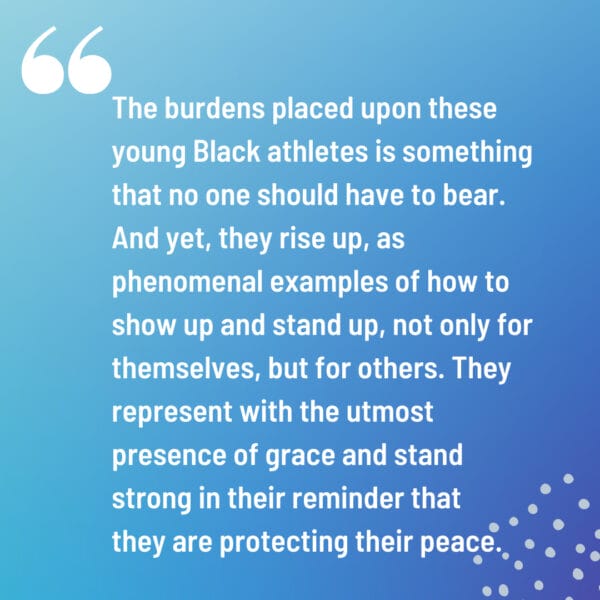
These young women have the power and the platform to change the way we view and value mental health and wellness. Shortly after dropping out of the gymnastics team event at the Tokyo 2020 Olympics, Simone Biles said, “I just think mental health is more prevalent in sports right now . . . we have to protect our minds and our bodies and not just go out and do what the world wants us to do.” For anyone who has ever felt pressure to use physical health as an excuse to account for a mental health issue, a significant mind shift may be approaching the way the world views self care.
I asked my colleague, Grace Greene, to weigh in with her thoughts. If you’ve followed some of her content, Grace writes about social justice issues and ways Gen Z-ers are finding resilience.
A Gen Z Perspective on Self Care
Simone and Naomi’s actions have reinforced to me that self care practices surrounding my mental health are valid and necessary. They have shown me that there is nothing we need to prove to anybody or ourselves.
As a young Black woman, I am hyper-aware of the immense pressure that society puts on me to conform to something palatable. I see it and I feel it; I’m either too much or too little. Needless to say, continuing to push through, shatter glass ceilings, and live my truth, on top of all of this, can be extremely overwhelming sometimes.

